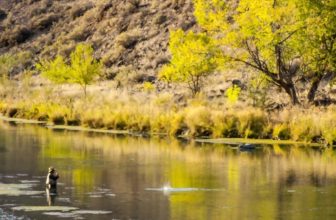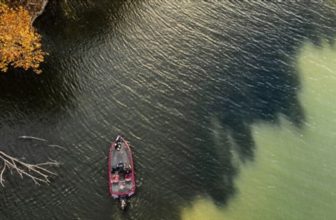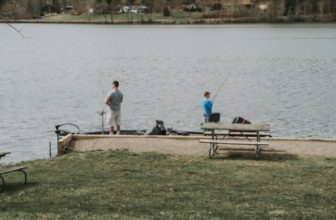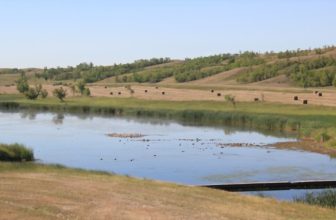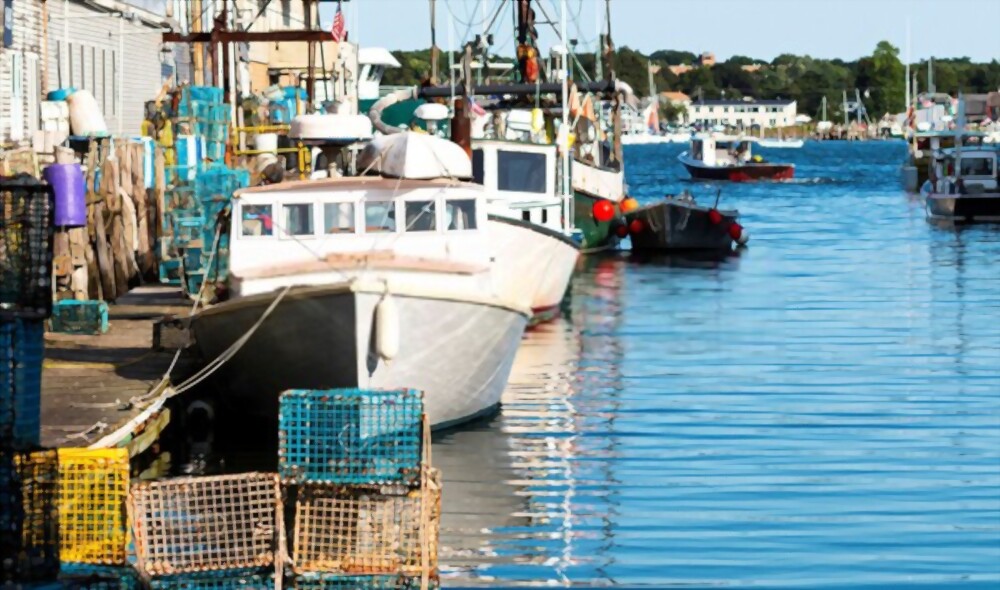
Maine Fishing License
If you’re planning on fishing in Maine, you’ll need to get a fishing license. The state offers a variety of licenses for residents and non-residents alike, so it’s important to know which one you need before you hit the water.
Whether you’re a seasoned angler or just starting out, having the right license is essential for staying legal and avoiding fines. Maine’s fishing licenses are issued by the Department of Inland Fisheries and Wildlife. There are several different types of licenses available, depending on your age, residency status, and the type of fishing you plan to do.
Some licenses are valid for the entire year, while others are only good for a specific period of time. Before you buy a license, make sure you know the rules and regulations that apply to your specific situation.
With the right license in hand, you’ll be able to explore some of the best fishing spots in the state and enjoy all that Maine’s waters have to offer.
Types of Maine Fishing Licenses
Looking to fish in Maine? Check out the different types of fishing licenses available! Before you start planning your fishing trip, it’s important to know what type of license you’ll need. The state offers several options for residents and non-residents alike.
First, there’s the freshwater fishing license, which is required for anyone 16 years or older who plans to fish in Maine’s inland waters. This license is valid for one year from the day it’s purchased. If you’re a resident, you’ll pay $25 for the license, while non-residents pay $64.
Next up is the saltwater fishing license, which is required for anyone 16 years or older who plans to fish in Maine’s coastal waters. This license is also valid for one year from the day it’s purchased. If you’re a resident, you’ll pay $7 for the license, while non-residents pay $15.
Lastly, there’s the combination license, which allows you to fish in both freshwater and saltwater. This license is valid for one year from the day it’s purchased. If you’re a resident, you’ll pay $38 for the license, while non-residents pay $96.
Keep in mind that if you plan to fish for certain species, such as trout or salmon, you may need additional permits or tags. Be sure to check the Maine Department of Inland Fisheries and Wildlife’s website for more information.
Resident Fishing License Requirements
To get your hands on a resident fishing license, you’ll need to prove that you’re a true-blue Mainer. This means showing proof of residency by presenting a Maine driver’s license or state-issued ID card. If you don’t have either, you can use a lease agreement, utility bill, or tax document that shows your name and Maine address as proof of residency.
Once you’ve established residency, you’ll also need to make sure you meet the age requirements. If you’re between the ages of 16 and 70, you’ll need to purchase a fishing license in order to cast a line in Maine’s waterways. If you’re under 16 or over 70, you won’t need a license, but you’ll still need to follow all fishing regulations and rules.
Finally, it’s important to note that while a resident license allows you to fish in Maine’s inland waters, it doesn’t give you permission to fish in tidal waters. For that, you’ll need a separate tidal water fishing license.
As long as you meet the residency and age requirements, and have the appropriate license, you’ll be able to enjoy some of the best fishing in the country in Maine’s beautiful lakes, ponds, and streams.
Non-Resident Fishing License Requirements
If you’re planning a fishing trip in Maine as a non-resident, make sure you have the necessary documentation to legally cast your line. Non-residents must have a valid Maine fishing license to fish in inland waters or transport fish taken from inland waters.
Licenses are available for various time periods, including one-day, three-day, seven-day, and full-year options. Prices vary based on the length of the license and the age of the person purchasing it.
To obtain a non-resident fishing license, you can purchase one online or in person at various locations throughout the state. You’ll need to provide some basic information, such as your name, date of birth, and contact information. You’ll also need to provide information about your residency status and the length of the license you wish to purchase.
Once you’ve paid for your license, you’ll receive a confirmation and can begin fishing immediately.
Remember, it’s important to have a valid fishing license when fishing in Maine as a non-resident. Failure to obtain a license can result in fines and legal consequences. So, before you head out on your next fishing adventure in the beautiful state of Maine, make sure you have the necessary documentation to cast your line legally and enjoy your time on the water.
Where to Purchase a Maine Fishing License
Don’t miss out on your chance to hit the water legally and start reeling in some big ones – grab your valid fishing permit at one of the many locations around the state!
Here are some options for where to purchase your Maine fishing license:
- Online: Visit the Maine Department of Inland Fisheries and Wildlife’s website to purchase your license online. This is a convenient option if you’re unable to visit a physical location or prefer to purchase from the comfort of your own home.
- In-person: Stop by a local retailer that sells Maine fishing licenses. These may include sporting goods stores, bait and tackle shops, or convenience stores. Be sure to bring identification and any necessary documentation, such as residency proof or previous fishing licenses.
- By mail: If you prefer to purchase your license by mail, you can print and fill out the application form from the Maine Department of Inland Fisheries and Wildlife’s website. Mail the completed form along with payment and any necessary documentation to the address listed on the form.
No matter which option you choose, make sure to purchase your Maine fishing license before hitting the water. Not only is it required by law, but it also helps to support conservation efforts and maintain healthy fish populations for future generations to enjoy.
So grab your gear, pick up your permit, and get ready to make some memories on the water.
Rules and Regulations for Maine Fishing License Holders
Get ready to explore the abundant waters of Maine as you learn about the essential rules and regulations that all fishing enthusiasts must follow. As a fishing license holder, it’s crucial to be aware of the laws in order to protect the natural resources and preserve them for future generations.
One of the most important rules is to always carry your license with you while fishing. Failure to do so may result in a hefty fine or even the revocation of your license.
Another vital regulation for Maine fishing license holders is to adhere to the daily bag limit and size restrictions for the various species of fish. It’s important to check the Maine Department of Inland Fisheries and Wildlife website for the latest information on these limits. Additionally, it’s illegal to possess fish that are not of legal size or species, and it’s important to release them back into the water immediately.
Finally, practicing ethical angling is crucial to maintaining the health of Maine’s fish populations. This includes using barbless hooks or crimping the barbs to make releasing fish easier, as well as minimizing the amount of time the fish is out of the water. It’s also important to properly dispose of all fishing line and bait, as they can be harmful to wildlife if left in the water.
By following these rules and regulations, you can have a successful and enjoyable fishing experience while also protecting Maine’s natural resources.
Frequently Asked Questions
Can I fish without a license in Maine if I am under 16 years old?
Yes, if you’re under 16 years old, you can fish in Maine without a license. However, you still need to follow all other fishing regulations such as size limits and bag limits.
Is catch and release fishing allowed in Maine?
Yes, you can engage in catch and release fishing in Maine. It’s a popular practice among anglers who want to enjoy the sport without harming the fish population. Just remember to handle the fish gently and release them back into the water quickly.
Are there any restrictions on the types of bait or lures I can use when fishing in Maine?
You can use any type of bait or lure when fishing in Maine, as long as it is legal and not banned. Make sure to check the regulations before heading out to your favorite fishing spot.
Can I use my Maine fishing license to fish in other states?
Yes, you can use your fishing license from one state to fish in another state as long as you follow the regulations of the state you are fishing in. Check the local rules before you fish.
Are there any special regulations for ice fishing in Maine?
When ice fishing in Maine, you must follow specific regulations. These include having a valid fishing license, using only two lines, and following size and bag limits for certain fish species.
Conclusion
Now that you know all about Maine fishing licenses, it’s time to get out on the water and cast your line.
Remember, whether you’re a resident or non-resident, you must have a valid license to fish in Maine.
Make sure to follow all rules and regulations to keep Maine’s waters and fish populations healthy for years to come.
And don’t forget to enjoy the beautiful scenery and peacefulness that comes along with a day of fishing in Maine.
So, go ahead and grab your license, your fishing gear, and head out for a day of relaxation and adventure on the water.



